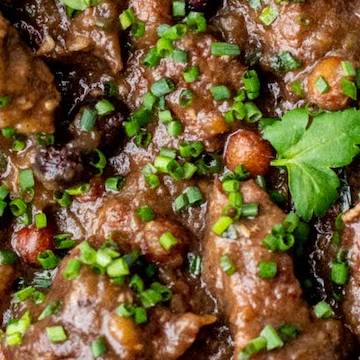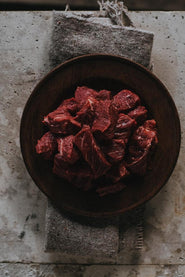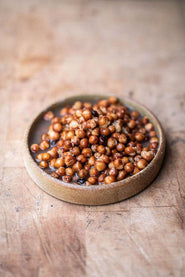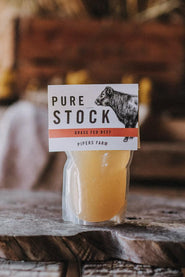Suddenly pea protein is all the rage, you can't go far without having some sort of super-processed pea-based snack shoved in your face, claiming to save your health and the planet.
Unfortunately, as with any food trend that corporations have jumped on the bandwaggon, planting their greedy feet square on top, the system in which these peas are produced and subsequently processed is horrendous. Vast amounts of chemicals like pesticides and herbicides are used to keep the crop growing, with these foul liquids seeping into the water system, all while the soil is drained of all it's life-forming goodness. Heavy diesel machinery charges through the fields ripping apart everything in its wake, including wildlife like voles, mice and nesting birds along with their fledglings. This is not the sort of food system that will save anyone - in fact we would go as far as to say it's bringing forward this planet's destruction.
The truth is there is good reason why corporations are trying to get their mitts on peas. Peas are highly nutritious, they are incredibly protein-dense and they don't cost as much to produce as meat protein (unless you are pouring on millions of chemical inputs).
We have a long history with peas in this country, they have always been a staple of the British diet, but not in the format we find them today. Instead of the fluorescent green frozen pea, we would have traditionally harvested and dried ancient varieties of pea such as the Carlin, also known as the 'badger' or 'black pea'. While fresh peas serve a purpose there is good reason to consider their gnarlier sibling, the dried pea.
Fresh peas are picked immature, when they're temptingly sweet and succulent but before the proteins and other nutrients have fully developed. Dried peas are left to ripen, mature and dry before harvest (they're naturally dried while still on the plant), by which time the protein content has both increased and improved in quality, much of the sugar has turned to more complex carbohydrates, and there's much more fibre, vitamins and minerals.
Our friends and much-admired farming heroes, Hodmedod's, have been reestablishing the traditional way of growing and harvesting peas in England, using the crop as part of a mixed system that creates the most incredible home for wildlife. Instead of the industrial system that tramples everything in the name of profit, Hodmedod's are fixated on utilising this wonderful crop to help regenerate our soils and in turn producing food that is so nutritious.
We have created this recipe as a perfect partnership to demonstrate how choosing the right farming system really can be good for the planet and good for our health.
In our case we are showcasing our sublime slowly reared native breed beef, which has only ever been fed a diet of 100% grass. Our Red Rubies have grazed rugged moorland in harmony with nature, helping to sustain the landscape and provide a rich environment to encourage abundant wildlife, fertilising the soil and keeping plant species in balance.
This simple heart dish is so easy to make. As with anything good, a little patience is required, but the result is delicious, nutritious food you can eat knowing everything is in balance.



